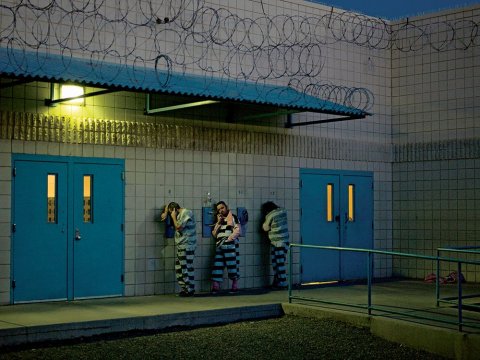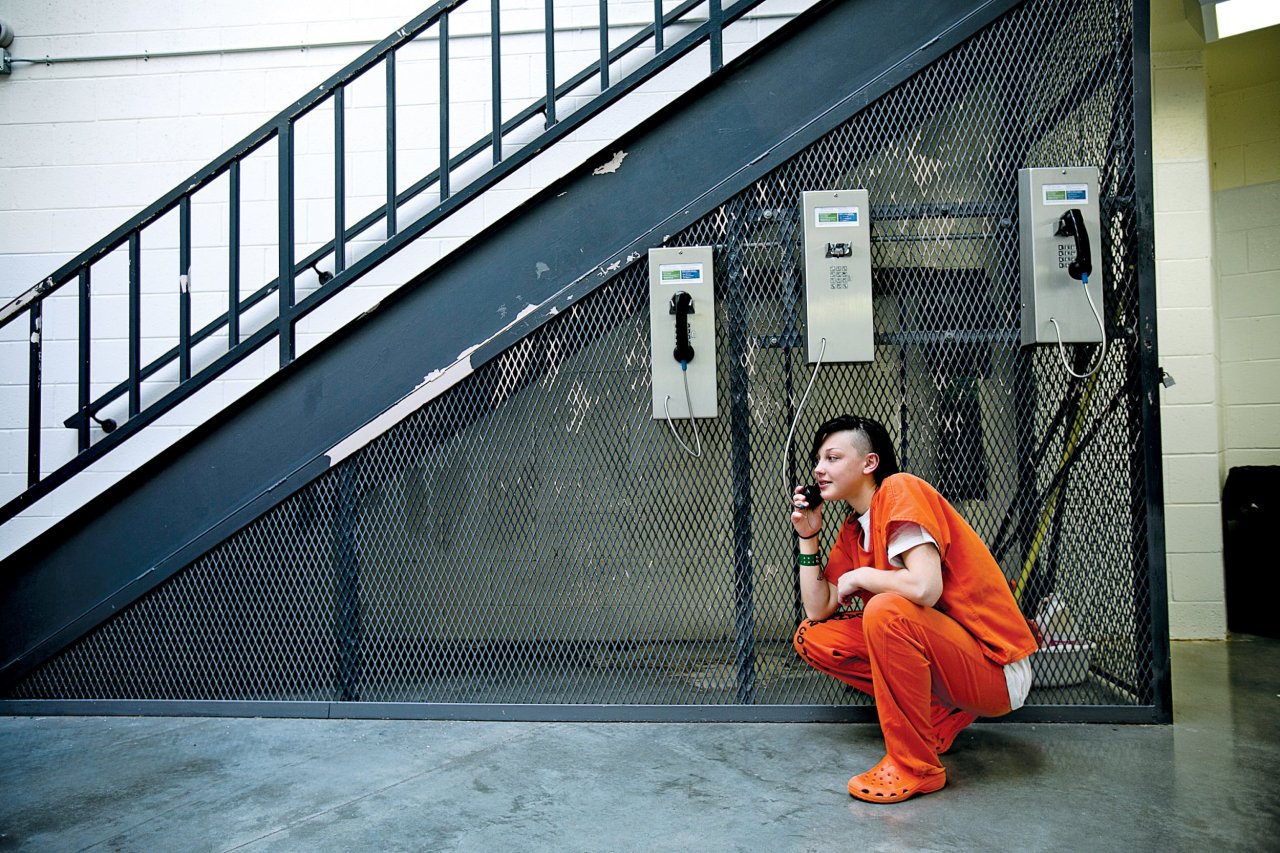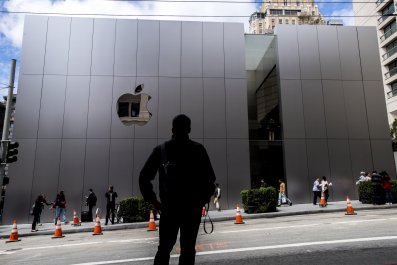This article originally appeared on the International Business Times.
Mary Jo Barnett sits in the living room of her trailer park home in Biloxi, Mississippi, and switches on her Samsung tablet. It's morning, which means it's time to video chat with her daughter, Amber, 20, who's locked up hundreds of miles away, in Ocala, Florida. These video calls are the only time the two get to talk, and they're especially important for Amber, who is bipolar and suffers from post-traumatic stress disorder.
Without their regular chats, Mary Jo is afraid her daughter may suffer a mental breakdown or start a fight, which could lengthen her stay at the Marion County Jail. "Just getting to talk to her," says Mary Jo, "can make the difference in her mindset."
Those chats, however, are enormously costly for Mary Jo, a 52-year-old grandmother who lives on the $733 a month she receives in disability. The video calls cost $10 every 30 minutes or $20 per month. Phone calls, meanwhile, cost $4 for every 15 minutes, plus a $10 fee to load money into an inmate's online account. Part of the reason the calls are so expensive is that a private company, Securus Technologies, has an exclusive contract to operate the jail's phone and video system. But the major reason for the high cost of the calls is that the local sheriff's office takes a cut. Last year, Marion County received $549,805 in "commissions" from Securus, according to county records.
'Total slush fund'
In America, jail and prison payphones are an important source of funding for local jurisdictions. For years, cash-strapped sheriffs and law enforcement officials across the country have signed contracts with third-party vendors—phone companies, commissaries, even medical providers—to take a cut of the proceeds paid by inmates and their families. These funds are intended for inmate mental health programs, indigent supplies and rehabilitation services. The Marion County Sheriff's Office, which operates the jail where Amber is locked up, says the money from the inmate canteen fund is always used to benefit those behind bars.
But over time, critics say, the ways in which prisons and jail officials spend this money has expanded beyond recognition. Inmate advocates, such as Paul Wright of the Human Rights Defense Center, say these payments are nothing more than "kickbacks" that artificially inflate prices for poor families and are spent with little to no oversight or auditing. "It's a total slush fund," he says, noting several instances in which local agencies bought police cruisers and jail supplies with the funds. "[It's] a boondoggle of corruption."
Others agree. According to Justin Jones, Oklahoma's former director of corrections, state prisons have strong regulations on how inmate welfare money is spent, but on the county level there's little oversight. "This is just another piece of what we have evolved into as a country," he says, "in the form of fines and fees and commissions for those that, in a previous decade, were funded by government sources."
On recent video call, Mary Jo sits at her kitchen table and opens the blinds so her daughter can see the birds outside her trailer. They talk about her nephew's track meet and the jail's sewage problem. Later, Mary Jo reviews her phone bills. She wishes she could talk to Amber more often, but she can't afford it. "It's a real big injustice," she says.
Studies show that communication with family members lowers the rates of recidivism. But calls are often too expensive for lower-income families like Amber's, who make up the vast majority of those who are incarcerated. In October 2015, the Federal Communications Commission voted to cap the rates and fees companies are allowed to charge families and friends of inmates. Mignon Clyburn, an FCC commissioner who pushed for the reforms, has called the prison phone industry the "most egregious case of market failure" she has seen.
Theoretically, the new rules make it more affordable for families to connect. But now that the FCC has begun capping phone rates, companies and local law enforcement officials are increasingly looking at video visits, which are unregulated, as a way to recoup lost revenue. "We've seen this from correctional officers for decades," says Josh Gravens, executive director of Organize Justice, a grassroots inmate advocacy group in Dallas. "They're willing to set people aside for profit."
Mary Jo, who recently had to borrow money from Amber's older sister to load funds into her daughter's account, says she's thankful she can speak to Amber. Other families have it much worse. Some inmates even ask Amber to relay messages to their parents or siblings who can't afford the calls.

That's how Mary Jo met Omarah Zemorah, 42, a cashier in Ocala. Zemorah's daughter, Estrella King, 24, is locked up on a parole violation and pregnant with her fourth child. Zemorah makes $8 an hour and struggles to pay for more than three calls a month, so sometimes King resorts to other means to speak to her and her children. "My daughter sells her trays [of food] inside the county to be able to call me," she says. "It's mainly hard on her children. They can't speak to their mother because I can't afford it."
'Perversion of democracy'
If commissions didn't exist, prices would go down. But for the providers, offering high commissions to county jails—along with free equipment—is a way to win business. In Marion County, for instance, Securus spent $955,940 to install 107 video visitation terminals at no cost to taxpayers, according to the county contract. Securus then gives 60.5 percent of the call revenue and 20 percent of the video revenue to the Marion County Sheriff's Office.
In some states, commission payments make up 94 percent of the call revenue. "Part of the heritage of our business is that we calculate, bill and collect commissions and pay those to jails," says Rick Smith, Securus's chief executive, in the company's promotional materials. The Dallas-based company, which contracts with 3,450 prisons and jails across the United States, says it has paid out $1.3 billion in commissions over the past decade.
Sheriffs maintain they use the funds for the benefit of prisoners, but Wright, the inmate advocate, says it's irrelevant how jurisdictions use the money. "If they decide Tasers are important, then they need to buy them with county money," he says. "It's a total perversion of democracy to turn the families of inmates into revenue streams."
Amber agrees. "I feel like I should be allowed to talk to my family at a reasonable price," she says, "but with outrageous...rates, it's hard to do that."
This article was originally published by the International Business Times.



















